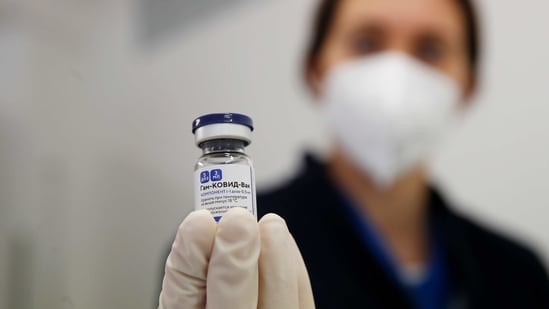Sputnik V, ‘world’s first’ Covid-19 vaccine, gets experts’ nod in India. All you need to know
Russia’s Sputnik V Covid-19 vaccine recommended for emergency use in India by the Subject Expert Committee of the country’s drug authority. If approved by the Drug Controller General of India, Sputnik V will become the third Covid-19 vaccine to be available in the nation.

Russia’s Sputnik V, the first Covid-19 vaccine to receive regulatory approval from any country in the world, has now received a recommendation for emergency use in India against the deadly coronavirus disease. The vaccine, first approved in Russia on August 11 last year, was on Monday recommended for emergency use in India by the Subject Expert Committee (SEC) of the country’s drug authority Central Drugs Standard Control Organisation (CDSCO). The Drug Controller General of India (DCGI) will take the final call on the recommendation, and if approved, the Russian vaccine will become the third Covid-19 vaccine to be available in India.
Here’s all you need to know about the ‘Sputnik V’ vaccine:
Why is the vaccine named Sputnik V?
The Sputnik V vaccine was named after Sputnik 1, the world’s first artificial Earth satellite, launched by the erstwhile Soviet Union on October 4, 1957. The word “sputnik” is Russian for satellite when interpreted in an astronomical context and its other meanings are a spouse or traveling companion. The “V” in the name is the letter V and stands for “vaccine”, and is not the Roman numeral for five.
Who developed the Sputnik V vaccine?
The vaccine is developed by the Gamaleya Research Institute of Epidemiology and Microbiology, a medical research institute headquartered in Moscow. The development of the vaccine is backed by the Russian Direct Investment Fund (RIDF) and it was registered by the Russian health ministry as Gam-COVID-Vac. In India, the vaccine is being marketed by Dr Reddy’s Laboratories, which has helped run a small trial for the drug in the country to test its safety and ability to generate an immune response, according to Reuters.
How does the Sputnik V vaccine work?
Sputnik V is an adenovirus viral vector vaccine. It uses a modified virus which cannot replicate and has instead been inserted with the spike protein of the SARS-CoV-2, to elicit an immune response in the body. According to the Russian health ministry, what makes this vaccine unique is that, unlike other similar vector-based vaccines, Sputnik V is a ‘two-vector vaccine’, meaning it uses two different types of adenovirus vectors — rAd26 for the first shot, and rAd5 for the second — for enhanced efficiency. The two vaccine shots are given to the Covid-19 patient three weeks apart.

Why did Sputnik V initially face criticism?
Sputnik V briefly courted controversies when Russia became the first country to grant it regulatory approval last year, a time when none of the pharmaceutical companies working on a potential Covid-19 vaccine in the United States and Europe had completed all the stages of their clinical trials. The ‘vaccine race’, not unlike the Cold War space race, was being closely observed by global watchdogs with much interest, and the competition to have the first vaccine was very much about international rivalries as much as it was about science.
Russia, as it turned out, did not get to enjoy a “Sputnik moment” after all, unlike the awe and wonder of the Soviet Union’s launch of the first satellite, of the same name, in 1957. Instead, it was met by doubts about science and safety. Leading science journals precipitated discussions in the community on how, if at all, the decision for approval was justified, as the Phase-I clinical trials for the vaccine were known to have started on June 17 and the final stages were reportedly completed in less than two months, by August 2.
The process usually takes several more months to go through, reports noted.
US infectious disease specialist Dr Anthony Fauci went on record to say, “I do hope the Chinese and the Russians are actually testing the vaccines before they are administering the vaccine to anyone. Because claims of having a vaccine ready to distribute before you do testing is problematic, at the very least.”
However, the speculations were put to rest on February 2, 2021, when an interim analysis from the trial was published in The Lancet medical journal, indicating 91.6% efficacy without unusual side effects.
What’s next for Sputnik V?
The ‘Sputnik V’ vaccine has already been approved for use and mass distribution in more than 50 countries including Argentina, Belarus, Hungary, the United Arab Emirates and Serbia, in addition to Russia, according to a PTI report. The Russian Direct Investment Fund has signed deals to produce more than 750 million doses of Sputnik V with six domestic firms in India, where a massive second wave of the coronavirus is running high amid surging demands for vaccines. Most panel recommendations are generally accepted by the regulator’s chief, Reuters said, and once approved, the vaccine will join other shots from the AstraZeneca-Oxford University and Bharat Biotech in the country’s nationwide inoculation drive.




